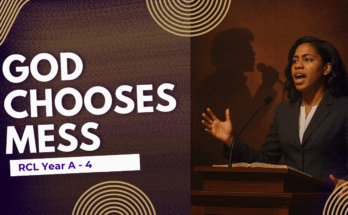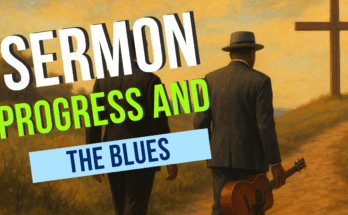As an Amazon Associate I earn from qualifying purchases.
Dr. McMickle discusses “praise” as the next reason why prophetic preaching has not been on the agenda of most preachers. Whether it is preaching conferences, journals, magazines, and church services, we are constantly given this call to praise. McMickle writes:
[T]here is a constant call to “praise God” that is seldom, if ever, followed up with a challenge to serve God in tangible ways that are benefit to our brothers and sisters, to our neighbors and friends, or to the widows, orphans, and strangers who are so constantly referenced in the Bible. Page 79.
McMickle notes that this call is constant whether on the WORD or Trinity Broadcasting Network, people of all ethnicities are calling for “praise.” We are constantly told that “when praises go up…blessings come down.” Certainly praise is important. The Bible itself tells us to praise God, but something is wrong when praise becomes an end to itself. Something is wrong when the preacher never gets to any ethical demands of the Christian life. Something is wrong when we depart the worship service without any intention to live a better life and/or to serve the community?
Is Your Praise a Result of God’s Transformative Power?
The kind of praise that makes no change in the life of the Christian and does not affect the community at all is a kind of worship that is a stench in the nostrils of the Most High. It was this kind of Worship that had not social implications and did not make the worshiper better that brought forth the following in Amos:
Amos 5:23-24
23Take thou away from me the noise of thy songs; for I will not hear the melody of thy viols. 24But let judgment run down as waters, and righteousness as a mighty stream.
How to Make Your Praise for Real
McMickle gives a way to balance praise and prophetic preaching in the worship service. There are four steps. The first step is to Kindle the mind. This is to encourage people to think about the topic in the sermon. The second step is to Energize the Will. Here is where we motivate the people to real concrete action. The third step is to disturb the conscience. Here we show people their need for restoration or bring them face to face with their sin. Finally, we stir the heart. It is here that we recognize the love, grace, and goodness of Jesus. Yes, we must praise, but this is no superficial praise. We must know what we are praising about. In addition, our praise should be as a result of our transformation.
In short, if praise is to be real, it is not about how loud you shout. Real praise comes as a result of an interaction with the transforming God. If we have truly met God our person and our communities will not be exactly the same as it was before we met that God. Let us stop the counterfeit praise and move on to meet the real God that will cause us to engage in real praise.
Amazon and the Amazon logo are trademarks of Amazon.com, Inc, or its affiliates.




